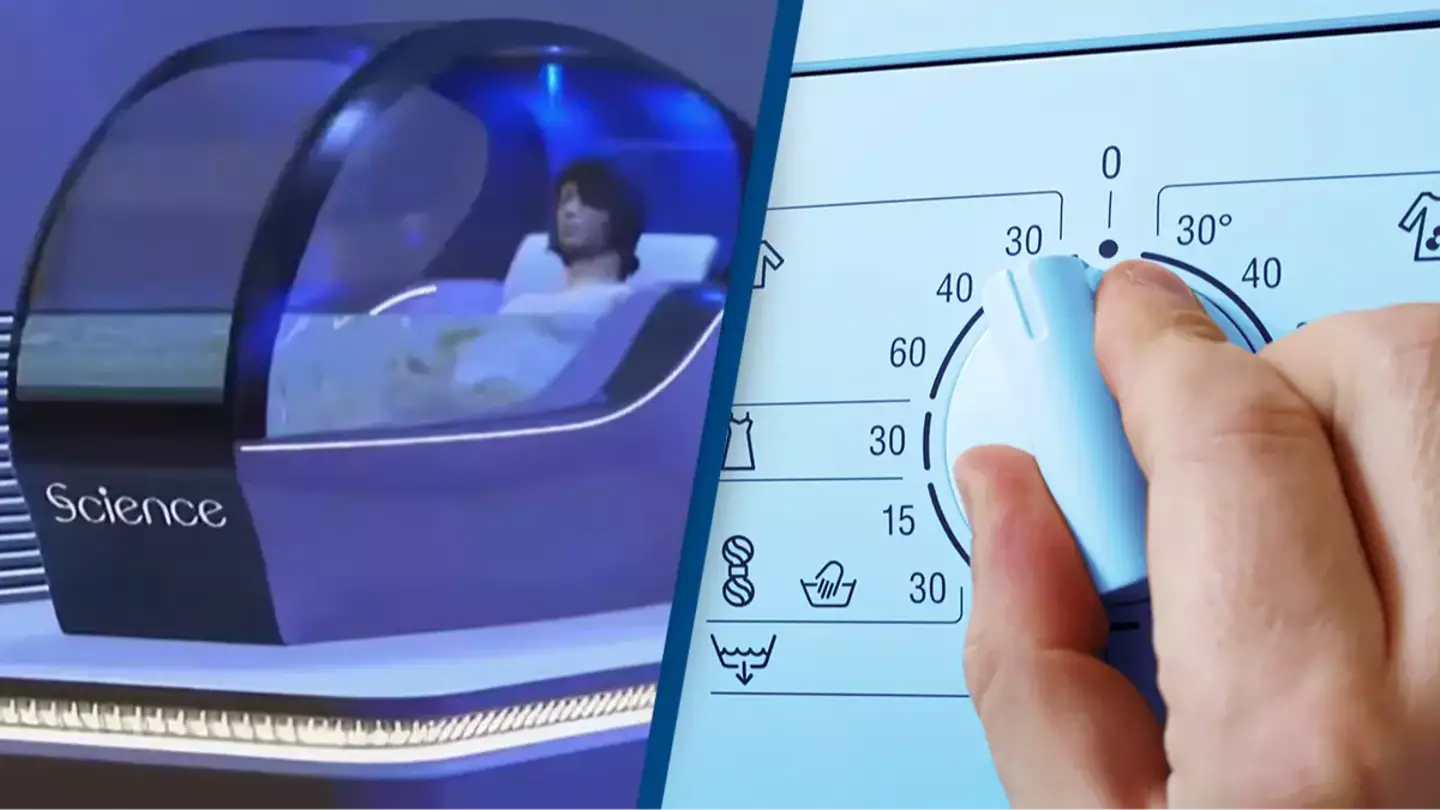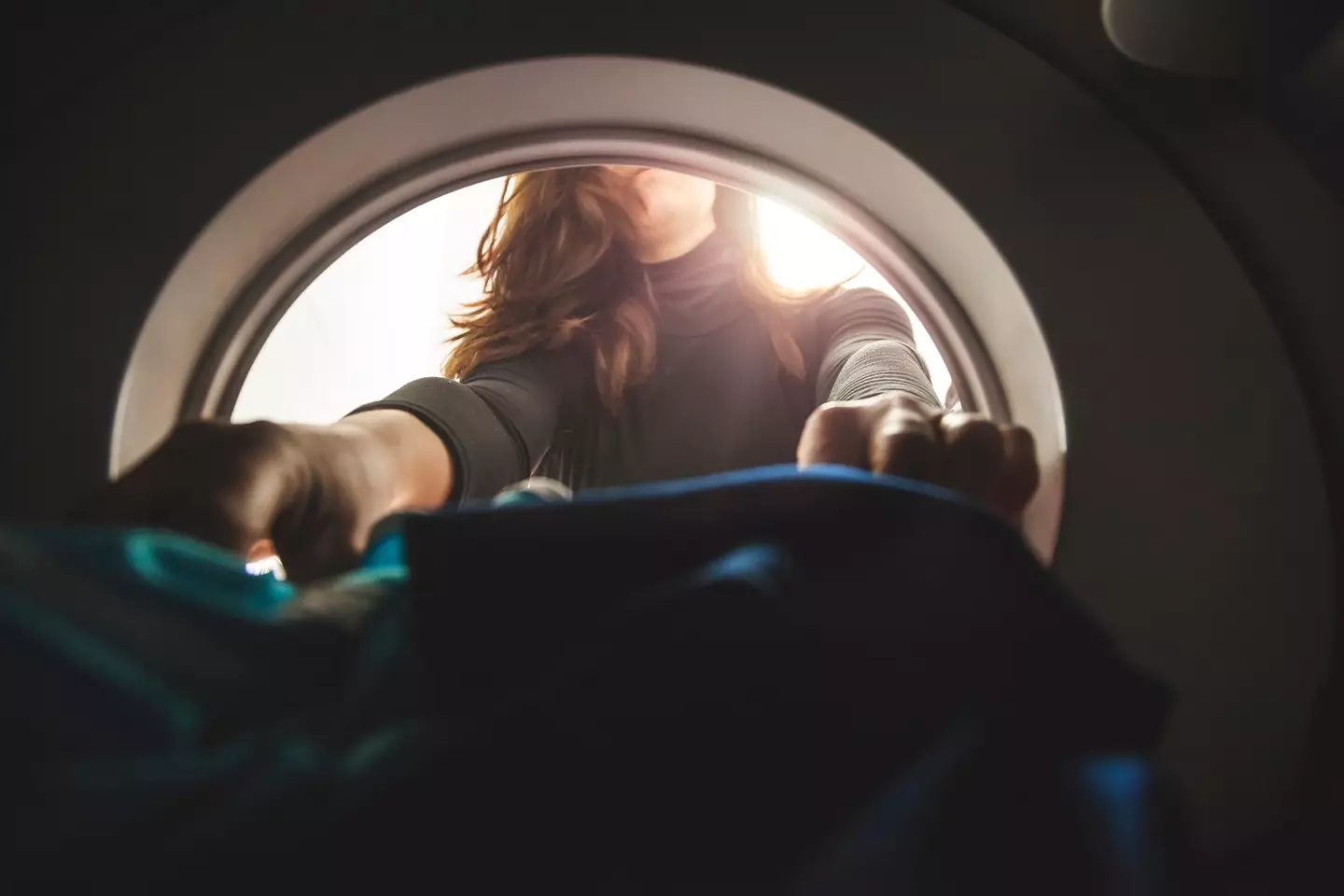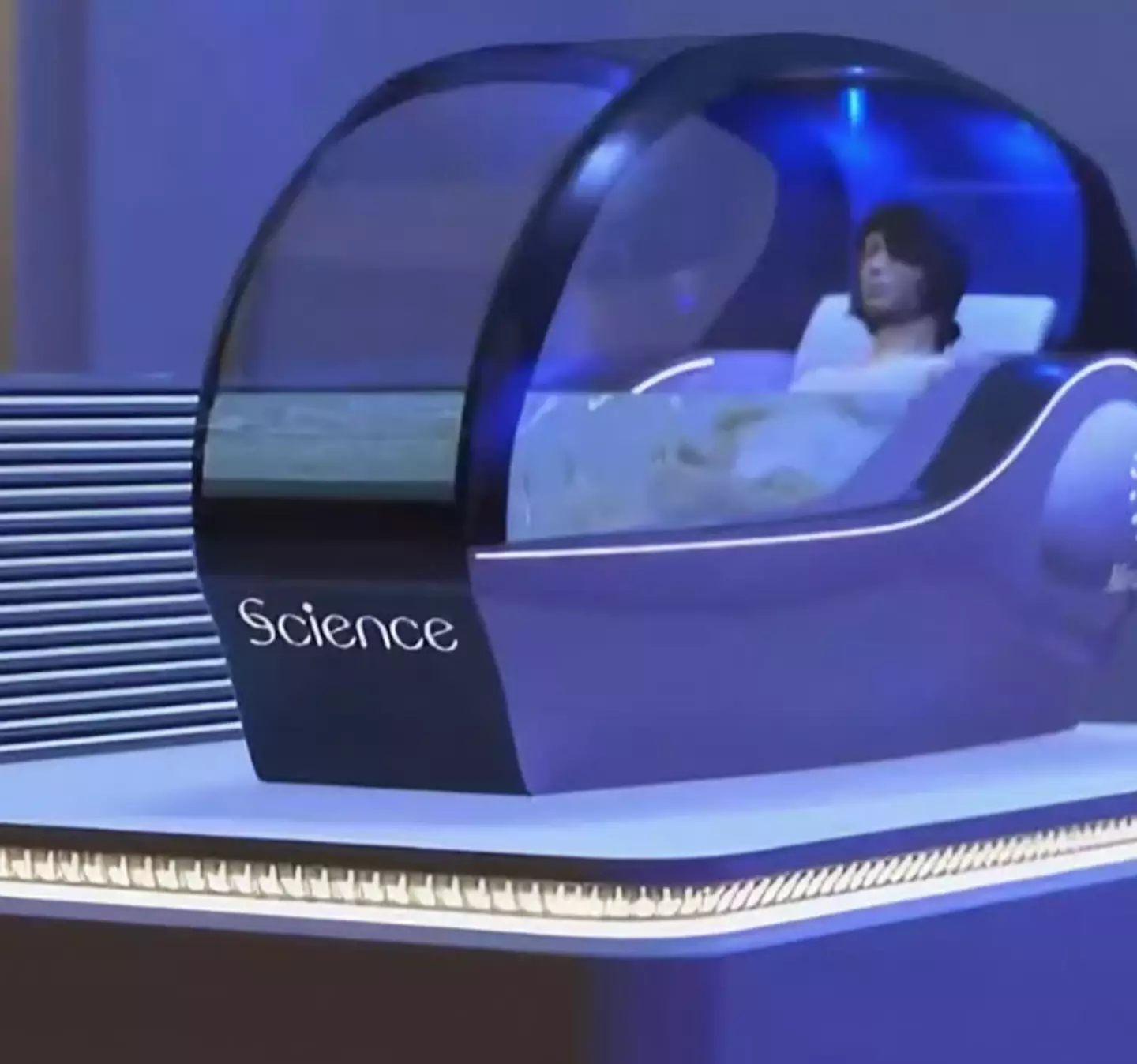
The chair of the company was inspired more than 50 years ago
If I’m honest, I’m not sure I’d want to climb into a human washing machine, although it’s made by some of the smartest minds on the planet, so I might give it a go.
Fast-forward 50 years and you’ll see one of these gadgets in the utility room of every house right next to the clothes washing machine and dryer – it’s weird that I’ve had to differentiate them in that way- along with an iron and ironing board.

Will we be getting into washing machines with our clothes on in the future? (Getty stock)
It will be the first time you and I have ever heard of a human washing machine, but more than 50 years ago, back in 1970 Japan, an egg-shaped pod dubbed the ‘Ultrasonic Bath’ was created that filled up with warm water when someone stepped in – it even gave massages.
The original machine was created by Panasonic Holdings Corp, formerly known as Sanyo Electric Co., but despite its genius, it never became mainstream.
Now, the chairman of Science Co., Yasuaki Aoyama, has revisited the design and given it a 21st century upgrade with the latest technological advances.
The Osaka-based showerhead maker has readied it for the same exhibition that it featured in the first time, and it clearly left a lasting impression on Aoyama who dreamt of making it throughout his childhood.
Yes, Aoyama will exhibit the ‘Mirai Ningen Sentakuki’, which translates to human washing machine of the future, in April and plan to demonstrate how it works… that is of course when it is all completed.
“We’re about 70 percent there,” he said.

The human washing machine has been created by Japanese firm Science Co. (Science Co.)
“We plan to offer 1,000 general visitors an opportunity to use it during the expo,”
with around seven to eight people being offered the experience to have a full ‘wash-and-dry’ in the pod each day.
So, how does it all work?
Much-like the old device, when someone steps inside the pod and sits down in its seat it begins to fill with hot water. Sensors in the seat will measure the participants pulse, and other bodily data, so that the wash is an appropriate temperature for them.
Then an AI system determines if the user is excited or calm and projects images on the transparent cover to help them feel refreshed.
Speaking to The Asahi Shimbun about the former washing machine and his company’s take on it, Aoyama said: “It made me excited, thinking about what kind of future there would be.
“We will offer a new human washing machine as a legacy from the 1970 expo.”





